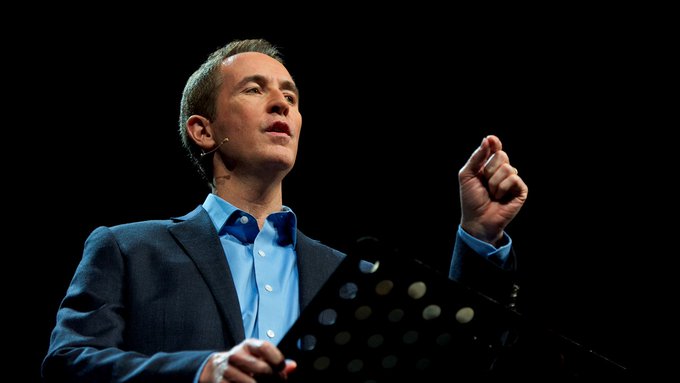
Chris Lange, FISM News
[elfsight_social_share_buttons id=”1″]
The controversy surrounding Andy Stanley’s “Unconditional Conference” underscores a cultural conundrum facing the church in today’s polarizing cultural climate: Where should believers draw the line between compassion and complicity when it comes to social issues that are antithetical to scriptural doctrine?
Today’s cultural push for LGBTQ+ acceptance has deeply divided the church, with results ranging from heated arguments to mass disaffiliations. Pastor and author Andy Stanley recently stepped into the fray by hosting a two-day event for families with LGBTQ children at North Point Community Church in Atlanta, where he serves as lead pastor.
The “Unconditional Conference” was billed as a “two-day premier event…for parents of LGBTQ+ children and for ministry leaders looking to discover ways to support parents and LGBTQ+ children in their churches.”
The conference was led by Greg and Lynn McDonald, co-founders of Embracing the Journey. The ministry’s aim is to offer encouragement to parents of LGBTQ kids based on the McDonalds’ personal experience of parenting a gay child.
Stanley was a featured speaker at the event, as were two men living in same-sex marriages, according to Church Leaders.
Such was the maelstrom that followed that Stanley was compelled to address the controversy from the pulpit two days later on Oct. 1.
“A great deal of misinformation has circulated regarding the purpose of the conference, and I do not want you to be misinformed,” Stanley wrote in an invitation to the Oct. 1 message, during which he would “talk about the conference and why we elected to host it.” He advised that “the subject matter will not be kid-friendly” and that, given the topic he planned to address, “we will not be streaming services online on October 1.”
Stanley reaffirmed the traditional biblical view of human sexuality that marriage is a sacred covenant between a man and a woman designed by God. However, he has since added qualifiers to the affirmation, according to reporting by Faithwire.
‘A DEPARTURE FROM HISTORIC, NORMATIVE BIBLICAL CHRISTIANITY’
Among Stanley’s critics over the “Unconditional Conference” is Al Mohler, president of the Southern Baptist Theological Seminary in Louisville, Kentucky. Mohler argued that Stanley’s decision to host the event represented a “departure” from a biblical understanding of sexuality and the covenant of marriage.
“[A]s a theologian, I just feel a responsibility to say that what this represents is a departure from historic, normative, biblical Christianity, ” Mohler said during a recent installment of “The Briefing” podcast.
“I think both sides understand this is the most basic disagreement we could imagine, so are sex and gender,” he continued. “It’s over ontology and being; it’s over Scripture, the authority of Scripture, and the interpretation of Scripture. It’s over God and the Gospel.
“It just doesn’t get any more basic than this,” Mohler continued, acknowledging “the gravity of the words I’m using when I say that what we see here is a departure from historic, normative, biblical Christianity. I say that because I believe that’s exactly what it is, and I believe Christians ought to take note of it.”
Stanley issued a public response to Mohler, declaring: “I want to go on record and say I have never subscribed to his version of biblical Christianity to begin with, so I’m not leaving anything,” according to a Faithwire report.
“This version of biblical Christianity is why people are leaving Christianity unnecessarily,” Stanley continued. “It’s the version that causes people to resist the Christian faith, because they can’t find Jesus in the midst of all the other stuff and all the other theology and all the other complexity that gets glommed on to the message’s bottom line, that version of Christianity, draws lines.”
Stanley argued that Jesus Himself allowed people into His “wide” inner circle who “made religious leaders nervous.”
He went on to explain that many individuals who are same-sex attracted “are convinced that traditional marriage is not an option for them” and, accordingly, try to live a “chaste life.” He added, however, that such a lifestyle is “not sustainable” for many, “so they choose same-sex marriage,” adding: “They choose to marry for the same reason many of us do: love, companionship.”
Author Alan Shlemon, who also serves as a speaker for Stand to Reason, attended the Unconditional Conference personally. He recently shared his thoughts with Church Leaders about the event.
“I’m frustrated by the conference suggesting that you either go with God or go with your kid, as if these are the only two options,” Shlemon said. “No, there’s a third way, and that is to maintain your biblical convictions and still love your friend or family member.”
Andrew Walker, an ethics and public theology professor at The Southern Baptist Theological Seminary and the author of “God and the Transgender Debate,” did not attend the conference but was present for Stanley’s Oct. 1 discussion, during which the Georgia pastor explained his views on sexuality and marriage.
Walker shared his observations in a post on X, in which he accused Stanley of trying to draw a “distinction between doctrine and pastoral practice.”
“What does that mean?” Walker wrote. “It means the doctrine has not officially changed, which is why he can technically affirm a ‘biblical view’ but, for all practical purposes, there is a pastoral accommodation that allows for LGBT-identified persons to disobey Scripture and remain in good standing as a Christian.”
Walker argued that “[w]hat Stanley considers as a failure to live up to an unattainable ideal, Scripture calls sinful.”
He further noted that Stanley’s message was void of any reference to sin and repentance.
“Nowhere in the messages was there any expectation that someone would turn from their same-sex relationship,” he wrote. “This is an example of unbounded empathy that listens (which is good) but never invites toward transformation (which is not good). For Stanley, if there’s a general commitment to Jesus, that is sufficient. Ethics takes a backseat to empty affirmations of ‘belief.’”
